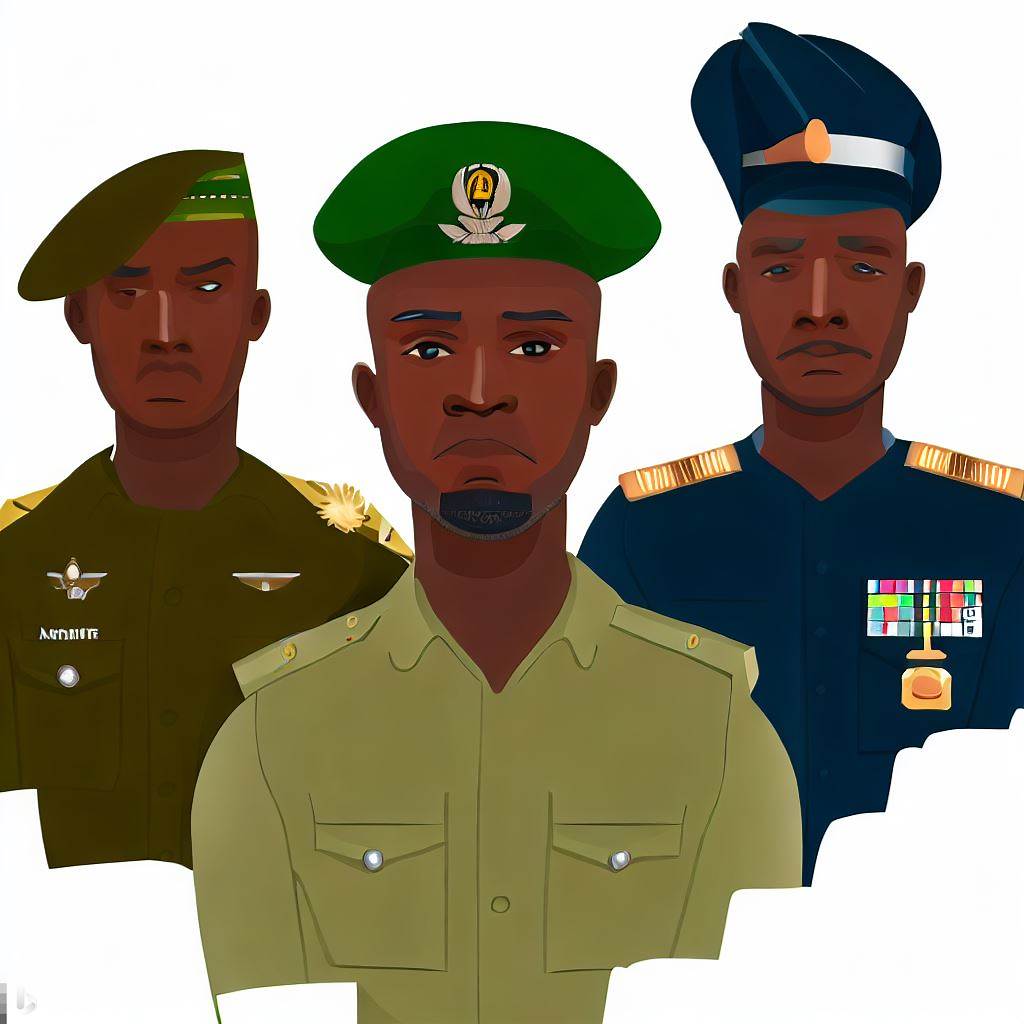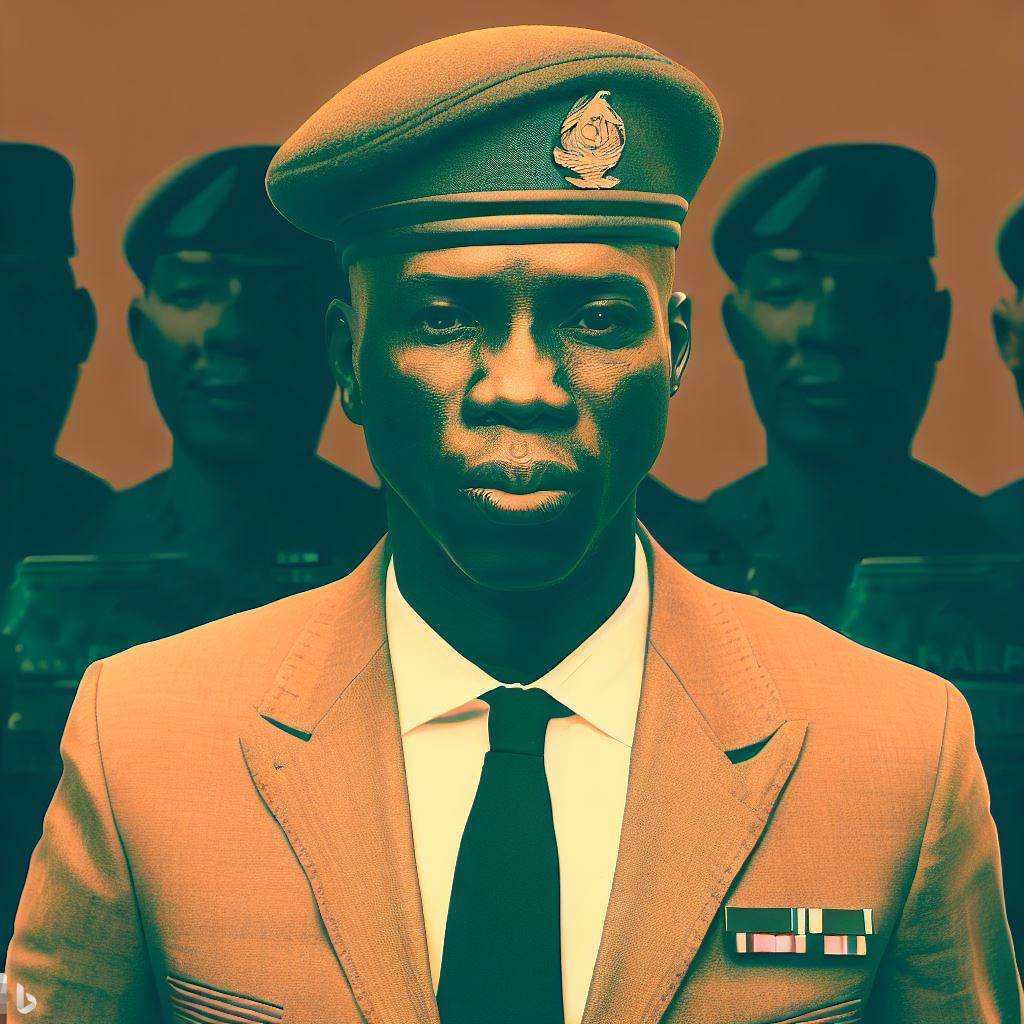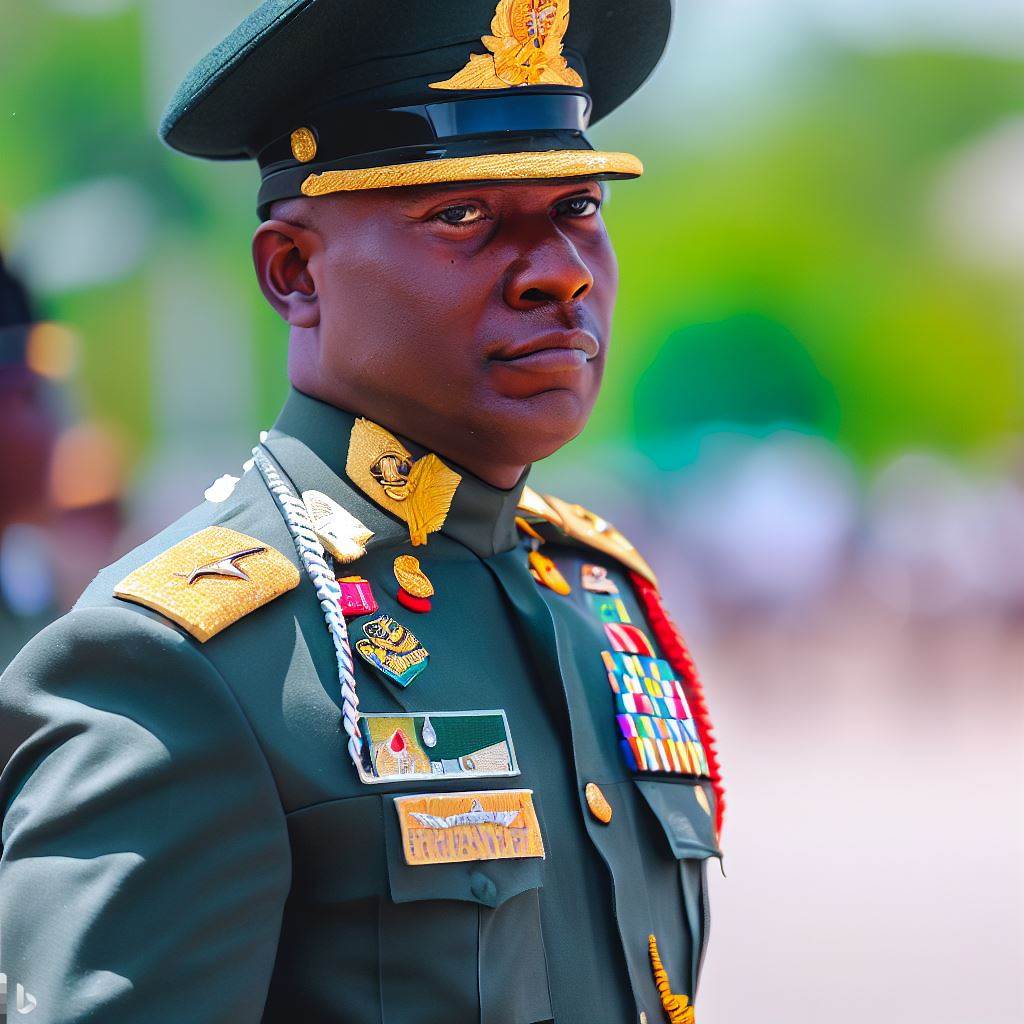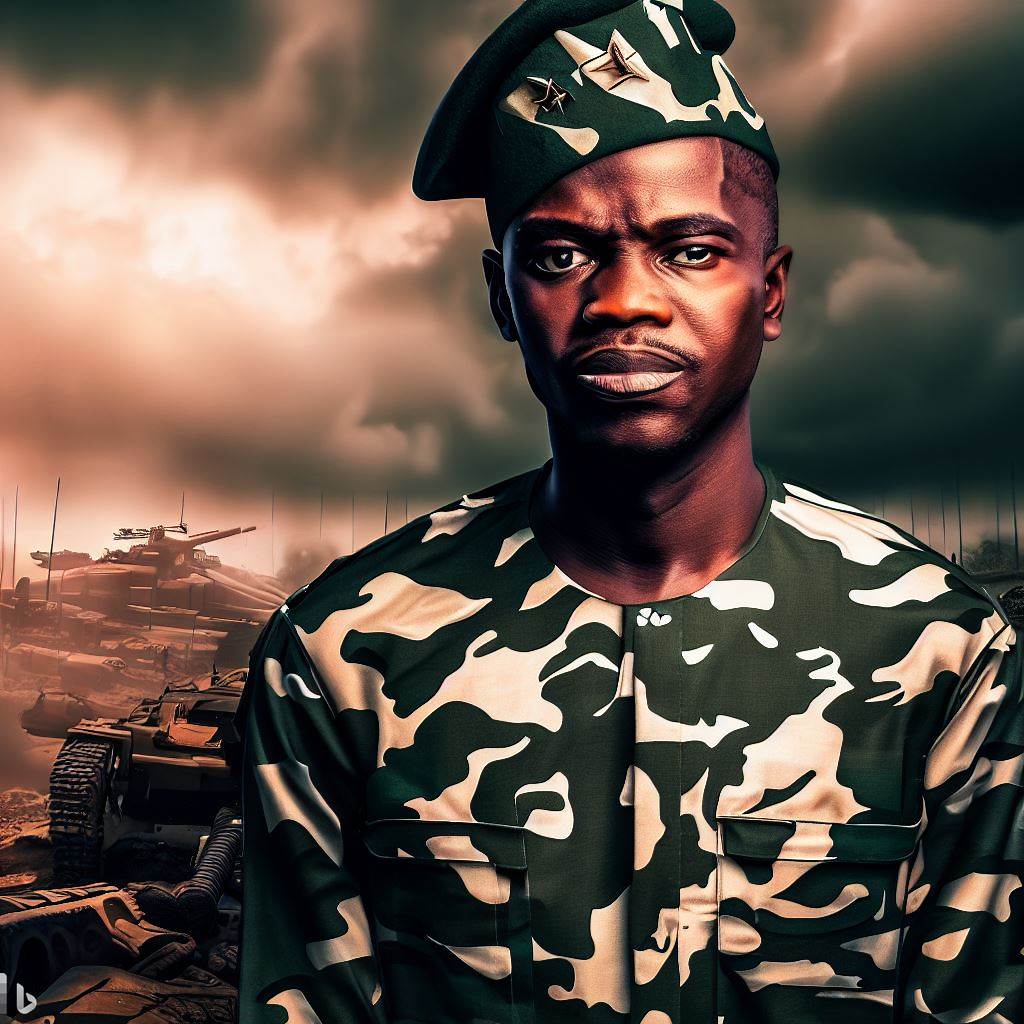Introduction
Government and Military in Nigeria: A Symbiotic Relationship
In the world of biology, a symbiotic relationship is defined as a relationship between two organisms that live in close association with each other and mutually benefit from the association. The same can be said for the relationship between the government and the military in Nigeria.
Nigeria is a country with a rich and complex history. Its government has gone through many changes since gaining independence from the United Kingdom in 1960.
During this time, the military played a significant role in the country’s political landscape, often taking control of the government through coups and military dictatorships.
The symbiotic relationship between the government and military in Nigeria can be described as one where each entity relies on the other for its survival.
The government needs the military to maintain law and order, as well as protect the country from external threats. Meanwhile, the military relies on the government for funding and support.
Despite its importance, this relationship has often been a tumultuous one. Nigeria has experienced several military coups and dictatorships in the past, leading to significant human rights abuses and political instability.
However, in recent years, there have been efforts to strengthen the relationship between the two entities through democratic means.
In essence, the relationship between the government and the military in Nigeria is a symbiotic one where each entity relies on the other for its survival.
While this relationship has had its challenges in the past, there are efforts being made to ensure that it remains a positive force for the country’s development and stability.
Read: Retirement in the Nigerian Military: What to Expect
Government and Military in Nigeria: A Symbiotic Relationship
Nigeria is one of the most populous countries in Africa and is home to over 200 million people. The West African country has a federal presidential system of government, which means that power is shared between the federal, state, and local governments.
The country gained independence from the United Kingdom in 1960 and has a rich political history that has been marked by challenges and successes.
Brief Overview of Nigeria’s Governmental Structure and Political History
The Nigerian government is divided into three branches: the executive, legislative, and judicial. The executive branch is headed by the president, who is responsible for governing the country and implementing policies.
The legislative branch consists of the National Assembly, which is made up of the Senate and the House of Representatives. The judicial branch is responsible for interpreting the laws and includes the Supreme Court, Court of Appeals, and Federal High Court.
The country’s political history has been marked by military coups and democratic transitions. Nigeria’s first president was Nnamdi Azikiwe, a prominent nationalist who played a significant role in Nigeria’s struggle for independence.
However, Nigeria has experienced several military coups in its history. The military ruled for a total of about 29 years before democratic rule was restored in 1999.
The Role of the Government in Nigeria
They have played a significant role in Nigeria’s development. The government is responsible for providing basic amenities such as healthcare, education, security, and infrastructure to its citizens.
The government also plays a significant role in regulating the economy and creating an enabling environment for businesses to thrive.
However, Nigeria’s government has been criticized for its poor management of public funds and corruption. Nigerian politicians have been accused of embezzling public funds meant for development projects.
This has hindered Nigeria’s progress and development. Also, the government has been criticized for its failure to address issues such as poverty, unemployment, and insecurity.
The Successes and Failures of Nigeria’s Government
Despite the challenges that Nigeria’s government has faced, there have been notable successes. For instance, the government has made significant progress in the fight against corruption.
The government has established anti-corruption agencies such as the Economic and Financial Crimes Commission (EFCC) and the Independent Corrupt Practices and Other Related Offences Commission (ICPC). These agencies have been successful in prosecuting corrupt politicians and recovering stolen public funds.
Also, Nigeria’s government has made progress in developing the country’s infrastructure. The government has embarked on several projects aimed at improving transportation, healthcare, and education in the country.
For instance, the government has initiated the construction of several new airports and rail lines across the country. However, despite these successes, Nigeria’s government has not been able to adequately address the country’s challenges.
For instance, Nigeria has been plagued by insecurity, with the Boko Haram insurgency and other forms of violence affecting the country for many years. Also, poverty and unemployment remain significant problems in the country.
The government and military in Nigeria have a symbiotic relationship that has had its successes and failures. The government is responsible for governing the country and ensuring that its citizens have access to basic amenities.
However, the government has been criticized for its poor management of public funds, corruption, and its inability to address the significant challenges facing the country. For Nigeria to progress, the government must prioritize the needs of its citizens and take deliberate steps to address the country’s challenges.
Read: A Guide to Understanding the Political Landscape of Nigeria
The Military in Nigeria
Nigeria has a long history of military rule since gaining independence in 1960. The military has played a critical role in shaping Nigeria’s political landscape, economy, and overall development.
In this blog, we will examine the role of the military in Nigeria, its successes and failures, and how it has a symbiotic relationship with the government.
Brief Overview of Nigeria’s Military History
- The Nigerian military was first established in 1863 during British colonial rule.
- After gaining independence in 1960, Nigeria’s military became heavily involved in politics through coups and military rule.
- The first coup occurred in 1966, which led to years of military rule.
- In 1999, Nigeria returned to civilian rule, but the military still plays a significant role in the country’s politics.
The Role of the Military in Nigeria
The military in Nigeria has a broad range of responsibilities, including the defense of the country’s territorial integrity, maintaining internal security, and rescue operations during national emergencies.
The military’s role extends beyond security to include economic development, foreign policy, disaster management, and community development.
The military has also been involved in peacekeeping missions in neighboring African countries under the auspices of the African Union and the United Nations.
These missions have helped to establish Nigeria as a significant player in international affairs, with the military being a critical tool of Nigeria’s foreign policy.
Successes and Failures of Nigeria’s Military
Nigeria’s military has recorded significant successes over the years, including the liberation of neighboring countries like Liberia and Sierra Leone from civil wars.
Additionally, the Nigerian military has played a significant role in the fight against terrorism, particularly Boko Haram in the northeast region of the country.
The military has also helped to maintain peace during elections in Nigeria, managing election violence and ensuring that the will of the people is reflected in the final results.
However, the military’s successes are not without failures and controversies. The military has been criticized for human rights violations and extrajudicial killings in its fight against Boko Haram.
Corruption has also been a significant issue in the military, with the diversion of funds meant for equipment and training. The lack of modern equipment and training has also limited the military’s effectiveness in some cases.
The Symbiotic Relationship between the Government and Military in Nigeria
In Nigeria, the relationship between the government and military can be described as symbiotic. Both institutions work together in achieving their objectives, with the military playing a significant role in governance.
Military generals have served in political positions, and retired military officers have served as diplomats, ministers, and heads of state. The government provides funding for the military, which, in turn, supports the government in maintaining law and order.
The military’s role in the country’s political affairs has reduced since Nigeria returned to civilian rule. However, it still has significant influence, particularly in the security sector, where the government relies heavily on the military for intelligence gathering and other support services.
In summary, the military in Nigeria has been a critical player in the country’s political, economic, and security landscape since independence. It has recorded significant successes and has had challenges. Nevertheless, its relationship with the government, which can be described as symbiotic, has helped to maintain stability in the country.
As Nigeria continues to develop, the military will play a crucial role in ensuring the country’s security, territorial integrity, and overall progress.
Read: Promotion Structure within the Nigerian Military
The Symbiotic Relationship
The government and military in Nigeria have a symbiotic relationship that has endured since the country’s independence in 1960. This relationship, although at times strained, has played a significant role in Nigeria’s political landscape.
This section will explore how the government and military function together, the advantages and disadvantages of their symbiotic relationship, and highlight how it has aided or hindered Nigeria’s progress over the years.
An Overview of the Symbiotic Relationship
The role of the military in governing Nigeria has been prevalent since the country’s independence. The military has played a significant role in coups and counter-coups, overthrowing governments when deemed necessary.
On the other hand, the government manages the country’s affairs, ensuring citizens’ well-being. The symbiotic relationship involves the military in national security and political governance in Nigeria.
The military provides security support to the government, thereby stabilizing the political environment. In turn, the government grants the military power and access to resources needed for effective security operations.
Advantages and Disadvantages of the Government-Military Relationship
The symbiotic relationship between the government and military in Nigeria has its pros and cons. One of the advantages is that it provides a stable environment for governance.
The military’s involvement in national security ensures that the government can focus on developing the nation and providing essential services to its citizens. Another advantage is that the military possesses the tools to protect Nigeria’s sovereignty.
With the military’s might, Nigeria is better equipped to defend itself against external threats. Additionally, the military is responsible for enforcing law and order, ensuring that citizens obey the law.
On the flip side, one of the major disadvantages of the symbiotic relationship is the military’s involvement in politics. There have been instances where the military has overthrown legitimate governments, creating instability and stunting Nigeria’s socio-economic development.
Furthermore, corruption and abuse of power characterize the military’s governance involvement, leading to the loss of valuable resources, hindering national development.
The Symbiotic Relationship’s Impact on Nigeria’s Progress
The symbiotic relationship between the government and military has had both positive and negative impacts on Nigeria’s progress. Although the military has supported governance through providing security, their involvement in politics has created fear and instability.
This instability has deterred foreign investment and hindered Nigeria’s progress. Furthermore, the military’s involvement in governance has led to political instability, making it challenging to conduct free and fair elections.
The military’s interference in elections has led to a lack of credibility and legitimacy, posing a threat to Nigeria’s democracy. On the positive side, the symbiotic relationship has enabled the military to develop into a formidable force capable of protecting Nigeria’s sovereignty.
The military has also contributed to the country’s socio-economic development. Through their involvement in peacekeeping missions, the military has gained experience, knowledge, and exposure, which they have brought to bear in developing Nigeria’s security apparatus.
The symbiotic relationship between the government and military in Nigeria has had far-reaching impacts on the country. Moving forward, government and military should collaborate, limiting military’s governance role to national security within legal bounds.
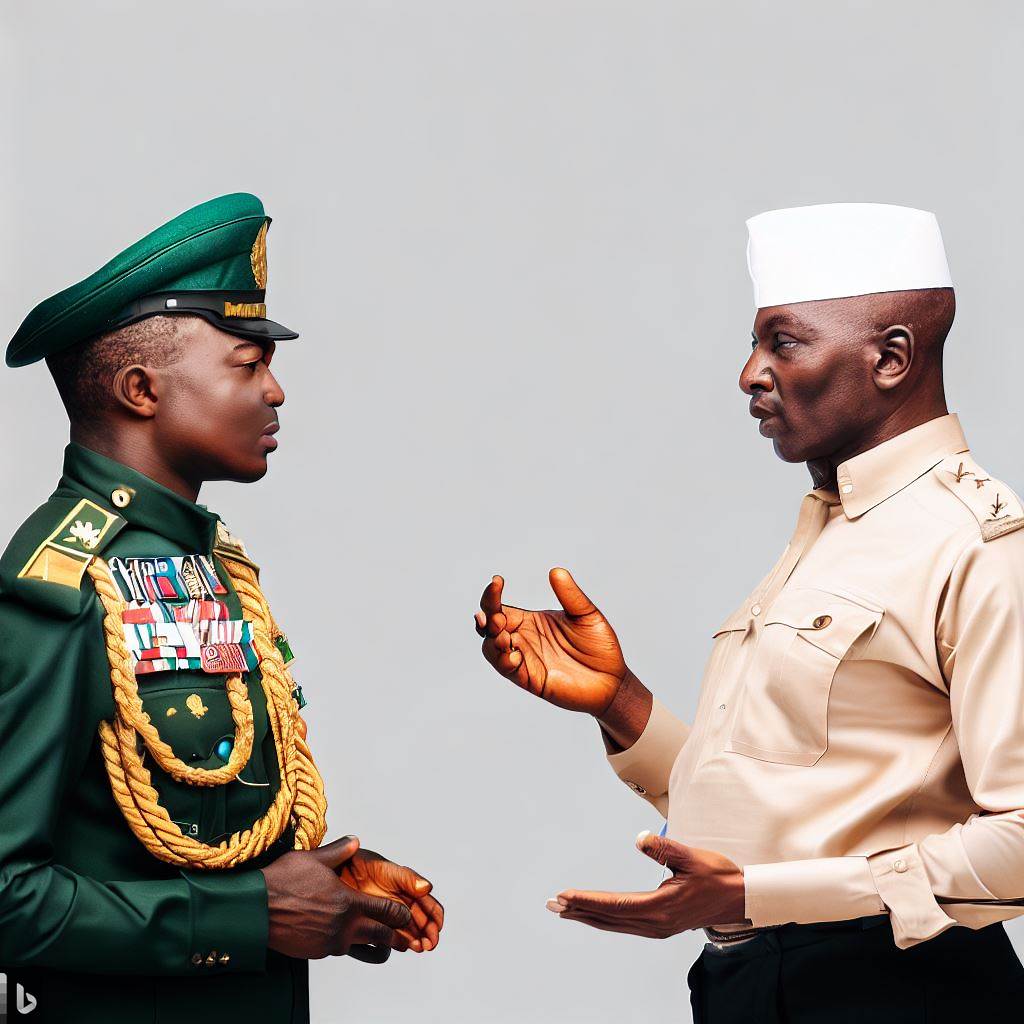
Challenges of the Symbiotic Relationship
In Nigeria, the government and military have a symbiotic relationship, relying on each other for duties. However, challenges exist.
One of the challenges of the symbiotic relationship between the government and the military in Nigeria is the high level of political interference in military affairs. This often leads to a lack of trust between both parties and can cause a breakdown in communication and collaboration.
Another challenge that affects the symbiotic relationship is the issue of inadequate funding. Frequent underfunding hampers the Nigerian military’s ability to protect citizens and the country effectively, causing insufficient equipment, training, and manpower.
Additionally, the lack of political will to address critical issues affecting the military is also a challenge that affects the symbiotic relationship between the government and the military.
Issues such as the welfare of soldiers, inadequate barracks, poor remuneration, and irregular promotion and retirement procedures are elements that have persisted for a long time and still require urgent attention.
The Role of corruption and how it affects the relationship
Corruption is a significant challenge that affects the symbiotic relationship between the government and the military in Nigeria.
The diversion of funds and resources meant for the military to private pockets has had a detrimental effect on the military’s capacity to perform their duties efficiently. This has led to a lack of trust between both parties and has affected collaboration.
The issue of corruption has also led to a lack of transparency and accountability, with many military purchases and contracts shrouded in secrecy, causing suspicion and mistrust. The corrupt practices have bred a culture of impunity in the military, making it difficult to punish erring officials and soldiers.
This has led to a loss of credibility in the eyes of the public, making it hard for the military to carry out their duties without fear of public backlash.
How the challenges can be surmounted
Surmounting the challenges of the symbiotic relationship between the government and the military will require commitment and a willingness to address the issues at hand.
One of the ways to address the challenges of the symbiotic relationship is by reducing the level of political interference in military affairs. The government should limit its interference to policy and strategic decision-making while allowing the military to carry out their duties without political pressure.
In addition, adequate funding is essential to the effective performance of the military. The government should ensure that the military receives adequate funding to purchase modern equipment, provide training and manpower, and improve the welfare of soldiers and their families.
The government should also be willing to address critical issues affecting the military, such as the inadequate barracks, poor remuneration, and irregular promotion and retirement procedures.
Address these issues urgently to boost military morale and enhance their capacity for diligent duties. Additionally, it’s important to confront military corruption directly. The government should ensure that there is transparency and accountability in military purchases and contracts.
Officials and soldiers involved in corrupt practices should face appropriate punishment for their actions. This will help to restore trust and credibility in the military and enhance their performance.
The symbiotic relationship between the government and the military in Nigeria is essential to the effective performance of the military in protecting the citizens and the country. However, as highlighted in this article, there are challenges that affect this relationship, such as political interference, inadequate funding, and corruption.
Overcoming these challenges will require a commitment to address the issues at hand and implement measures to restore trust and accountability in the military.
Read: The Nigerian Government: Achievements and Pitfalls
Conclusion
Overall, the symbiotic relationship between the government and military in Nigeria is crucial to the development of the country. The military has played a significant role in maintaining stability and security in the nation, while the government provides resources and support for the military.
However, there is room for improvement in the relationship between the two entities. The government should prioritize funding and support for the military, especially in training and modernization, to enhance their effectiveness.
There should also be more transparency and accountability in the military’s actions and use of resources. Furthermore, the government can also improve the relationship by considering the military’s welfare and addressing their concerns, such as better living conditions and remuneration.
This will boost the morale of the military, and in turn, improve their performance and contribution to national development. It is essential to note that the cooperation between the government and military is vital in tackling challenges such as terrorism, insecurity, and other threats to the nation’s peace and stability.
Furthermore, the symbiotic relationship is also instrumental in fostering unity, national integration, and development. Finally, Nigeria’s progress depends on the unbroken cooperation and collaboration between the government and military to advance the nation’s interests.

